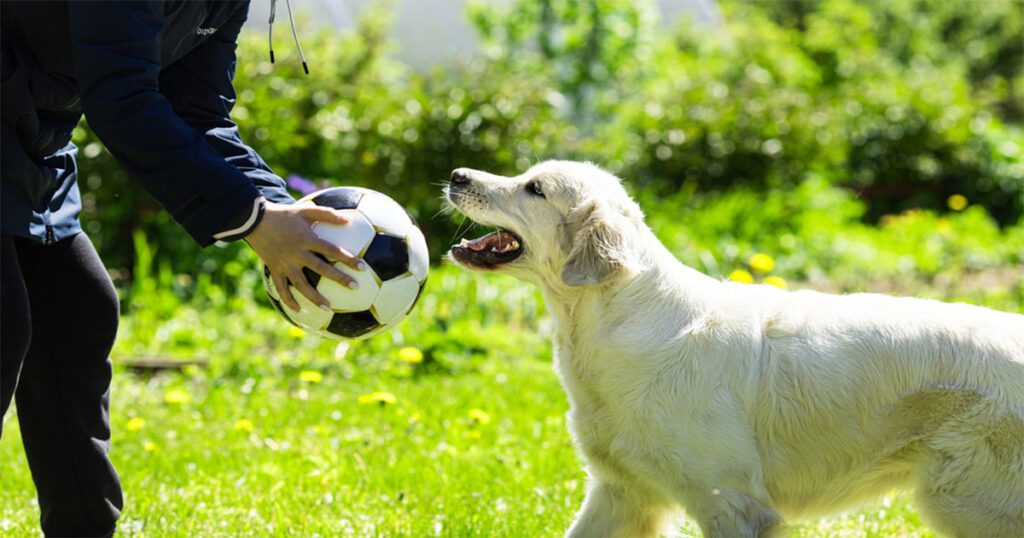Welcome to our comprehensive guide on breed restrictions and their impact on German Shepherd owners. In this article, we will explore the various aspects of breed restrictions, focusing specifically on German Shepherds.
If you’re a German Shepherd owner or considering adopting one, it’s crucial to understand the challenges and regulations associated with this breed.
Let’s delve into the topic and shed light on breed restrictions and how they affect your beloved German Shepherd.
Table of Contents
Understanding Breed Restrictions
Breed restrictions are regulations imposed on certain dog breeds, limiting their ownership, housing options, travel opportunities, and insurance coverage. These restrictions aim to address concerns related to public safety, liability, and negative stereotypes associated with specific breeds.
While the intention is often to protect communities and prevent incidents, breed restrictions can pose challenges for responsible dog owners, particularly those who own breeds like German Shepherds.
The German Shepherd: An Overview
German Shepherds are intelligent, loyal, and versatile dogs that have gained popularity as working dogs, family pets, and service animals.
They are known for their protective nature, trainability, and versatility in various roles, including search and rescue, police work, and therapy assistance. They are one of the most beloved dog breeds globally, with a rich history and a strong presence in the canine world.
Breed Restrictions for German Shepherds
Breed-Specific Legislation
Breed-specific legislation (BSL) refers to laws and regulations that target specific breeds or types of dogs. These laws can vary across different jurisdictions and may include outright bans, restrictions on ownership, mandatory muzzling, and insurance requirements.
While BSL is aimed at reducing dog-related incidents, it often stigmatizes breeds like German Shepherds based on misconceptions and stereotypes.
Housing Restrictions
Many rental properties and housing communities enforce breed restrictions that limit or prohibit the ownership of certain dog breeds, including German Shepherds.
These restrictions are often based on insurance policies, property management decisions, or concerns about potential damage or liability. GSD owners may face challenges in finding suitable accommodation that allows their beloved pets.

Housing Restrictions
4.3. Travel Restrictions
Some airlines have policies that limit or prohibit certain breeds from traveling in the cabin, requiring them to be transported as cargo instead.
Specific destinations or accommodation options may have restrictions on accommodating large or certain dog breeds.
Insurance Restrictions
Obtaining homeowner’s or renter’s insurance can be a hurdle for GSD owners due to breed restrictions imposed by insurance companies. Some insurers either exclude coverage for certain breeds altogether or charge higher premiums, citing the breed’s perceived risk.
It’s crucial to explore insurance options that provide coverage for them to protect against potential liabilities.
Reasons Behind Breed Restrictions
While each jurisdiction and organization may have its justification, some common reasons for imposing breed restrictions include:
Public Safety Concerns
One of the primary drivers behind breed restrictions is the concern for public safety. Certain breeds, including GSD’s, have been associated with incidents involving aggression or bites.
To mitigate risks and protect communities, breed-specific regulations are implemented as preventive measures.
Negative Stereotypes
Negative stereotypes and misconceptions surrounding specific dog breeds contribute to the imposition of breed restrictions.
Breeds like German Shepherds may be unfairly labeled as aggressive or dangerous due to isolated incidents or media portrayals. Overcoming these stereotypes is crucial to ensure fair treatment and opportunities for responsible dog owners.
Incidents and Statistics
Incidents involving dog bites or attacks, particularly those attributed to specific breeds, often drive the need for breed restrictions. Statistics and reports on dog-related incidents are considered when formulating regulations to address public safety concerns.
It’s essential to approach these statistics with critical analysis and consider other contributing factors beyond breed alone.
Insurance Liabilities
Insurance companies may impose breed restrictions due to liability concerns. Breeds perceived as high-risk may be excluded from coverage or subject to higher premiums.
Insurance restrictions can pose challenges for German Shepherd owners when seeking appropriate coverage for their homes or rental properties.
Challenges Faced by German Shepherd Owners
German Shepherd owners often encounter various challenges due to breed restrictions. These challenges can impact areas such as housing, travel, insurance, and public perceptions. Here are some common difficulties faced by German Shepherd owners:
Finding Suitable Accommodation
Many rental properties, housing communities, and homeowner associations have breed restrictions that limit or prohibit German Shepherds. This can make it challenging for owners to find suitable accommodation that welcomes their beloved pets.
Conducting thorough research and exploring dog-friendly housing options is essential for German Shepherd owners.
Traveling with a German Shepherd
When planning trips or vacations, German Shepherd owners must consider travel restrictions that may apply to their breed. Some airlines have specific rules regarding traveling with dogs, including size limitations and breed restrictions.
It’s crucial to familiarize yourself with airline policies and find accommodations that accommodate large dog breeds.

Traveling Restriction
Obtaining Insurance
Securing homeowner’s or renter’s insurance that provides coverage for German Shepherds can be a daunting task. Many insurance companies have breed restrictions that either exclude certain breeds or require additional documentation and higher premiums.
It’s important to research and compare insurance providers to find suitable coverage for your German Shepherd.
Addressing Public Perceptions
German Shepherds and their owners may face negative perceptions and stereotypes due to breed restrictions and media portrayals. Overcoming these perceptions and advocating for responsible ownership is crucial.
Educating others about the breed, sharing positive experiences, and promoting responsible dog ownership can help address public perceptions and misconceptions.
Training and Socialization
Training and socialization play key roles in raising a well-behaved and balanced German Shepherd. Here are some aspects to consider:
Importance of Training
Training is vital for German Shepherds to ensure they understand boundaries, follow commands, and exhibit good behavior.
Basic obedience training, such as sit, stay, and come, should be introduced early on. Consistency, positive reinforcement, and patience are essential when training your German Shepherd.
Socializing Your German Shepherd
Socialization is crucial for German Shepherds to develop appropriate behavior around people, animals, and various environments. Exposing your German Shepherd to different situations, noises, and stimuli from an early age helps them become well-rounded and confident dogs.
Puppy classes, controlled interactions, and positive experiences with other dogs and people contribute to effective socialization.

Socializing Your German Shepherd
Responsible Ownership
Owning a German Shepherd comes with great responsibility. Below some key aspects of responsible ownership:
Understanding Your Dog
Understanding the specific needs, temperament, and characteristics of German Shepherds is essential for responsible ownership. German Shepherds require mental and physical stimulation, regular exercise, and social interaction.
Being knowledgeable about the breed helps ensure you provide a suitable environment and meet your dog’s needs.
Exercise and Mental Stimulation
German Shepherds are active dogs that thrive with regular exercise and mental stimulation. Engaging in activities such as walking, jogging, playing fetch, and puzzle toys helps prevent boredom and destructive behaviors.
Providing a variety of physical and mental stimulation contributes to the overall well-being of your German Shepherd.
Supervision and Leash Control
Supervision and leash control is important for the safety of your German Shepherd and others around them.
Keeping your dog on a leash in public spaces and ensuring they are under control during interactions with people and other animals is crucial. Proper supervision helps prevent accidents, conflicts, and potential incidents.
Neutering and Spaying
Responsible owners often choose to spay or neuter their German Shepherds. These procedures offer various benefits, including reducing the risk of certain health issues, preventing unwanted litter, and potentially curbing certain behavioral problems.
Consult with your veterinarian to determine the appropriate timing for spaying or neutering your German Shepherd.
Tips for Advocating for German Shepherds
Advocating for German Shepherds and promoting positive awareness is essential to combat breed restrictions. Here are some tips to consider:
Education and Awareness
Education is a powerful tool to dispel myths and misconceptions surrounding German Shepherds. Share accurate information about the breed’s traits, behavior, and responsible ownership practices.
Engage in conversations, contribute to online forums and communities, and support educational initiatives that promote understanding and appreciation for German Shepherds.
Positive Representation
Promote positive representation of German Shepherds through sharing stories, photos, and videos that highlight their intelligence, loyalty, and positive contributions.
Counteract negative stereotypes by showcasing German Shepherds in various roles, such as therapy dogs, service animals, and family pets.
Getting Involved
Get involved with organizations and initiatives dedicated to German Shepherd welfare and advocacy. Volunteer at local shelters or rescue organizations, participate in breed-specific events and support legislation that focuses on responsible dog ownership rather than breed-specific restrictions.
By actively engaging in advocacy efforts, you can make a positive impact and help create change.
Frequently Asked Questions
Q: Can I own a German Shepherd in an apartment?
Ans: While German Shepherds are large dogs, it’s possible to own one in an apartment if you can provide them with sufficient exercise and mental stimulation. However, it’s crucial to check housing restrictions and ensure your living situation is suitable for a German Shepherd’s needs.
Q: Do German Shepherds have breed restrictions in public places?
Ans: Breed restrictions in public places can vary depending on local regulations and policies. Some areas may have restrictions or requirements for certain breeds, including German Shepherds. It’s important to familiarize yourself with local laws and guidelines to ensure compliance.
Q: How can I find housing that allows German Shepherds?
Ans: Finding housing that allows German Shepherds can be challenging due to breed restrictions. However, it’s not impossible. Research dog-friendly rental properties, communicate with landlords or property management companies, and consider reaching out to German Shepherd breed-specific rescue organizations for advice and recommendations.
Q: Are there any travel restrictions for German Shepherds?
Ans: Some airlines have specific regulations or restrictions when it comes to traveling with dogs, including size limitations and breed restrictions. It’s crucial to review airline policies and requirements before making travel arrangements with your German Shepherd. Additionally, certain destinations may have specific rules or restrictions regarding dog breeds.
Q: How can I address negative stereotypes associated with German Shepherds?
Ans: Addressing negative stereotypes associated with German Shepherds requires education and positive representation. Share accurate information about the breed’s characteristics, advocate for responsible ownership, and showcase the positive contributions of German Shepherds through personal experiences and stories. Promote understanding and challenge misconceptions whenever possible.
Q: Is training necessary for German Shepherds?
Ans: Training is highly recommended for German Shepherds. These intelligent and active dogs thrive with mental stimulation and structure. Training helps establish boundaries, reinforce positive behavior, and ensure the safety of your German Shepherd and others. It’s important to provide consistent training and socialization from a young age.
Q: What are the key responsibilities of owning a German Shepherd?
Ans: Owning a German Shepherd comes with important responsibilities. Some key responsibilities include providing proper nutrition, exercise, and healthcare; ensuring a safe and stimulating environment; training and socializing; adhering to local regulations; and advocating for the breed’s positive representation.
Conclusion
In conclusion, breed restrictions can pose challenges for German Shepherd owners. Understanding the reasons behind these restrictions, addressing public perceptions, and advocating for responsible ownership is essential for overcoming these challenges.
With proper training, socialization, and responsible care, German Shepherds can thrive as beloved family members, working dogs, and companions.

I’m David, an expert contributor and writer, with two furry friends of my own, I know the challenges of raising and caring for dogs. From training to nutrition and health, my goal is to provide valuable insights and advice to help create strong bonds and happy, healthy lives. Find me in Twitter.




